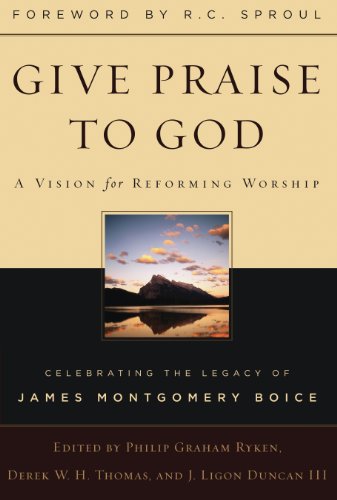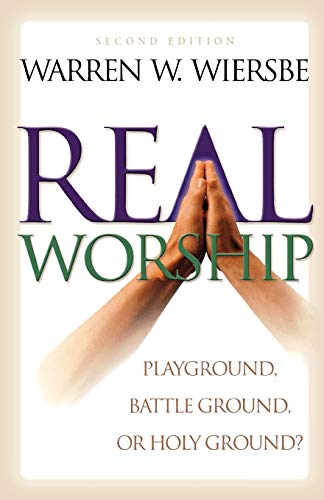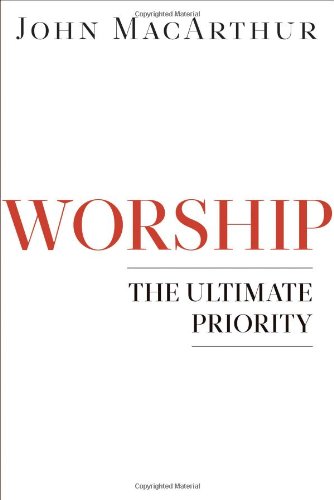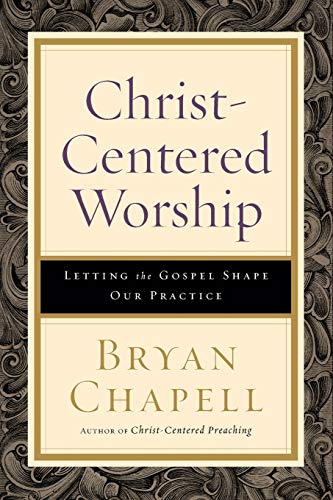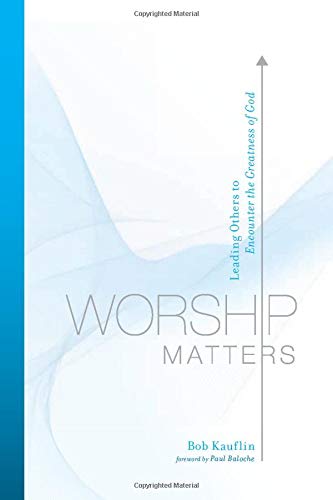Quotes about Worship-Priority_in
The true, the genuine worship is when man, through his spirit, attains to friendship and intimacy with God. True and genuine worship is not to come to a certain place; it is not to go through a certain ritual or liturgy; it is not even to bring certain gifts. True worship is when the spirit, the immortal and invisible part of man, speaks to and meets with God, who is immortal and invisible.
Lawful worship consists in obedience alone.
We were created to worship Jesus Christ. We were created for Him, to become something to Him in order that He might find pleasure in us. But this demands discipline. This demands self-renunciation. This demands the mortifying of the flesh. This demands the taking out of our lives everything that does not contribute to the one great objective.
Without the heart it’s not worship, it’s a stage play.
Without the heart it is not worship; it is a stage play; an acting a part without being that person really…a hypocrite. We may truly be said to worship God-though we lack perfection; but we cannot be said to worship Him if we lack sincerity.
True worship begins with brokenness and humility over whatever God reveals to us in His Word. Poverty of spirit and mourning over our sin lead to genuine repentance, which in turn leads to forgiveness. Forgiveness will produce freedom – freedom from guilt and bondage. When we have freedom that has been birthed out of brokenness, repentance, and forgiveness, we will have a greater capacity for love – supernatural ability to love God and to love those who are unlovable – and for worship. And of course, true love and worship will lead up back to a new level of brokenness, which leads to greater and deeper repentance, increased forgiveness, newfound freedom, and an even greater capacity for love and for worship.
Brokenness, The Heart God Revives, Moody Publishers, 2002, p. 117. Get this book!
The duty of singing praises to God seems to be given wholly to excite and express religious affections. There is no other reason why we should express ourselves to God in verse rather than in prose and with music, except that these things have a tendency to move our affections.
As quoted by John Piper in a God-Entranced Vision of All Things, Crossway Books, 2004, p. 242.
The foundation of worship in the heart is not emotional (“I feel full of worship” or “The atmosphere is so worshipful”). Actually, it is theological. Worship is not something we “work up,” it is something that “comes down” to us, from the character of God.
It is God who gives us the spirit of worship (Psalm 133:3), and it is what we know of God that produces this spirit of worship. We might say that worship is simply theology, doctrine, what we think about God, going into top gear! Instead of merely thinking about Him, we tell Him, in prayer and praise and song, how great and glorious we believe Him to be!
The most vital concern for each of us is to have a joyful and fulfilled future… Whatever people hope for in the future, that is what they worship, and whatever people worship, that is what they inevitably serve.
The Unity of the Bible, Zondervan, 1992, p. 302-303. Get this book!
If God’s people are to worship Him in spirit and in truth – and they are – then we must look to Scripture both to form and inform our worship style. By using the ordinary means of grace God has given us, worship gives the opportunity to preach the Word, sing the Word, pray the Word, and read the Word. True worship is Christ-centered and Word-centered.
Address thyself to the worship of God with a solemn pause, and take time to compose thyself for it, not going about it with precipitation, which is called hasting with the feet (Pro. 19:2). Keep thy thought from roving and wandering from the work; keep thy affections from running out towards wrong objects, for in the business of God’s house there is work enough for the whole man, and all too little to be employed… When we are in the house of God, we are in a special manner before God and in His presence, there where He has promised to meet His people, where His eye is upon us and ours ought to be unto Him
Our devotion must culminate in a conscious yielding of every part of our personality, every ambition, every relationship, and every hope to Him. This done, we have reached the apex of personal devotion. As Thomas a Kempis said, “As Thou wilt; what Thou wilt; when Thou wilt.”
Disciplines of a Godly Man, Crossway Books, 1991, p. 93. Get this book!
The height of devotion is reached when reverence and contemplation produce passionate worship, which in turn breaks forth in thanksgiving and praise in word and song.
Disciplines of a Godly Man, Crossway Books, 1991, p. 90. Get this book!
The God we seek is a Person. As we seek Him (and not just an experience of Him) we glorify and do indeed enjoy Him… It is not “my experience” at which proper worship aims. Fulfilling personal experience is a by-product of God-centeredness in worship.
It’s not the excellence of our offering that makes our worship acceptable but the excellence of Christ. We cannot worship the eternal Father apart from the eternal Son… Our worship is accepted not on the basis of what we have done, but on the basis of what Christ has done.
Worship Matters, Crossway Books, 2008, Crossway Books, a division of Good News Publishers, Wheaton Illinois 60187, www.crosswaybooks.org, p. 25. Get this book!
The most important worship leader is Jesus. He reveals God to us and through His perfect sacrifice provided the only way into the Father’s presence (1 Timothy 2:5; Hebrews 10:19-22).
Worship Matters, Crossway Books, 2008, Crossway Books, a division of Good News Publishers, Wheaton Illinois 60187, www.crosswaybooks.org, p. 53. Get this book!
Next Sunday, if the Spirit stopped empowering your worship, would anyone notice?
Worship Matters, Crossway Books, 2008, Crossway Books, a division of Good News Publishers, Wheaton Illinois 60187, www.crosswaybooks.org, p. 87. Get this book!
Our churches can’t be Spirit-led unless they’re Word-fed. A church that’s dependent on the Spirit’s power in its worship will be committed to the study, proclamation, and application of God’s Word in its personal and congregational worship. The Word and the Spirit were never meant to be separated. In fact God’s Spirit is the one who inspired God’s Word… God’s Spirit and His Word go together.
Worship Matters, Crossway Books, 2008, Crossway Books, a division of Good News Publishers, Wheaton Illinois 60187, www.crosswaybooks.org, p. 89-90. Get this book!
Some Christians repress their emotions as they sing. They fear feeling anything too strongly and think maturity means holding back. But the problem is emotionalism, not emotions. Emotionalism pursues feelings as an end in themselves. It’s wanting to feel something with no regard for how that feeling is produced or its ultimate purpose. Emotionalism can also view heightened emotions as the infallible sign that God is present. In contrast, the emotions that singing is meant to evoke are a response to who God is and what He’s done. Vibrant singing enables us to combine truth about God seamlessly with passion for God. Doctrine and devotion. Mind and heart.
Worship Matters, Crossway Books, 2008, Crossway Books, a division of Good News Publishers, Wheaton Illinois 60187, www.crosswaybooks.org, p. 99. Get this book!
God could reject our worship for a number of reasons. He specifically condemns acts of worship associated with idolatry, unbelief, disobedience, and evil motives (Jeremiah 13:10; Exodus 30:9; 32:22-27; Jeremiah 7:21-26). Rehearsing this list makes me aware that our offerings of worship will never please God on their own. Try as hard as we can, our hearts and worship will always be tainted in God’s sight. The ultimate factor of acceptable worship is faith in and union with Jesus Christ. Our spiritual sacrifices are “acceptable to God through Jesus Christ” (1 Peter 2:5). It is His sinless offering of worship that cleanses and perfects ours.
Worship Matters, Crossway Books, 2008, Crossway Books, a division of Good News Publishers, Wheaton Illinois 60187, www.crosswaybooks.org, p. 74. Get this book!
Biblically speaking, no worship leader, pastor, band, or song will ever bring us close to God. We can’t shout, dance, or prophesy our way into God’s presence. Worship itself cannot lead us into God’s presence. Only Jesus Christ Himself can bring us into God’s presence, and He has done it through a single sacrifice that will never be repeated – only joyfully recounted and trusted in.
Worship Matters, Crossway Books, 2008, Crossway Books, a division of Good News Publishers, Wheaton Illinois 60187, www.crosswaybooks.org, p. 74. Get this book!
The better (i.e., the more accurately) we know God through His Word, the more genuine our worship will be. In fact, the moment we veer from what is true about God, we’re engaging in idolatry. Regardless of what we think or feel, there is no authentic worship of God without a right knowledge of God.
Worship Matters, Crossway Books, 2008, Crossway Books, a division of Good News Publishers, Wheaton Illinois 60187, www.crosswaybooks.org, p. 28.
The perfect church service would be one we were almost unaware of; our attention would have been on God.
The glory of God is the goal of redemption and the salvation of the sinner is the means to that… Only the people who understand that are the ones that understand what worship is really about.
Seven Characteristics of the Coming King. The sermon originally appeared (https://www.gty.org/library/sermons-library/42-226/seven-characteristics-of-the-coming-king-part-4) at www.gty.org. © 1969-2008. Grace to You. All rights reserved. Used by Permission.
The supreme thing is worship. The attitude of worship is the attitude of a subject bent before the King. The fundamental thought is that of prostration, of bowing down.
When I see Thee as Thou art, I’ll praise Thee as I ought.
Worship is not confined to the expression of praise through singing, or even praise and prayer, but rather it is the offering of ourselves to God in daily obedience (Romans 12:1), and that only then is our more public worship acceptable to God (Derek Prime and Alistair Begg).
On Being a Pastor, Moody Press, 2004, p. 226. Get this book!
It is not always easy to recognize what is merely a matter of personal taste – and capable, therefore, of being changed – and what is fundamental to worship and should, therefore, be unaltered. We should encourage people to test every contribution by its God-centeredness and its ability to edify, and for all to learn to see debatable issues from other people’s point of view… The most vital truth we must convey is that what is important is not how acceptable our worship is to ourselves or to others, but how acceptable it is to God – a priority sometimes forgotten (Derek Prime and Alistair Begg).
On Being a Pastor, Moody Press, 2004, p. 226. Get this book!
These are the hallmarks of good worship songs, whether they’re hymns or choruses: biblical accuracy, God-centeredness, theological and/or historical progression, absence of first-person singular pronouns, and music that complements the tone of the lyrics (Mark Dever and Paul Alexander).
Music, taken from The Deliberate Church, © 2005, Crossway Books, a division of Good News Publishers, Wheaton Illinois 60187, p. 120, www.crosswaybooks.org.
It makes sense that we only sing songs that use [God’s] Word both accurately and generously. The more accurately applied scriptural theology, phrases, and allusions, the better – because the Word builds the church, and music helps us to remember that Word, which we seem so quickly to forget (Mark Dever and Paul Alexander).
Applying the Regulative Principle, taken from The Deliberate Church, © 2005, Crossway Books, a division of Good News Publishers, Wheaton Illinois 60187, p. 85, www.crosswaybooks.org.
Strong affections for God, rooted in and shaped by the truth of Scripture – this is the bone and marrow of biblical worship.
Desiring God, 1996, p. 91, Used by Permission, www.desiringGod.org. Get this book!
If the essence of worship is satisfaction in God, then worship can’t be a means to anything else.
The Dangerous Duty of Delight, Copyright 2001, p. 57-58, John Piper. Used by permission. www.DesiringGod.org.
Nothing keeps God at the center of worship like the biblical conviction that the essence of worship is deep, heartfelt satisfaction in Him and the conviction that the pursuit of that satisfaction is why we are together.
The Dangerous Duty of Delight, Copyright 2001, p. 57, John Piper. Used by permission. www.DesiringGod.org.
The widespread notion that high moral acts must be free from self-interest is a great enemy of true worship. Worship is the highest moral act a human can perform; so the only basis and motivation for it that many people can conceive is the moral notion of disinterested performance of duty. But when worship is reduced to disinterested duty, it ceases to be worship. For worship is a feast of the glorious perfections of God in Christ.
The Dangerous Duty of Delight, Copyright 2001, p. 54, John Piper. Used by permission. www.DesiringGod.org.
People ought to come to corporate worship services to get. They ought to come starved for God. They ought to come saying, “As the deer pants for the water brooks, so my soul pants for You, O God” (Psalm 42:1). God is profoundly honored when people know that they will die of hunger and thirst unless they have God.
The Dangerous Duty of Delight, Copyright 2001, p. 56, John Piper. Used by permission. www.DesiringGod.org.
Bored boasting in Christ and sad exultation in Christ are oxymorons. The enjoyment is essential to making much of Christ.
Why I Love the Apostle Paul, Copyright 2019, John Piper. Used by permission. www.DesiringGod.org. Page 162.
Brothers and sisters, we must be more earnest in seeking God in worship. We must be less flippant and less frivolous and thoughtless and casual and disrespectful as we approach the chamber of God in the assembly of the faithful. Have you ever thought through the implications of Jeremiah 29:13 where God says, "You will seek me and find me; when you seek me WITH ALL YOUR HEART." There is only one reason to come to this service – to seek and find GOD! And the Lord God says to you straight from his Word every Sunday, "You will find me when you seek me with ALL YOUR HEART!"
You Shall Worship the Lord Your God, Sermon, September 8, 1985, Used by Permission. www.DesiringGod.org,
For many, Christianity has become the grinding out of general doctrinal laws from collections of biblical facts. But childlike wonder and awe have died. The scenery and poetry and music of the majesty of God have dried up like a forgotten peach at the back of the refrigerator.
The revolt against hedonism has killed the spirit of worship in many churches. When you have the notion that high moral acts must be free from self-interest, then worship, which is one of the highest moral acts a human can perform, has to be conceived simply as duty. And when worship is reduced to a duty it ceases to exist. One of the great enemies of worship in our church is our own misguided virtue. We have the vague notion that seeking our own pleasure is sin and therefore virtue itself imprisons the longings of our hearts and smothers the spirit of worship. For what is worship if it is not our joyful feasting upon the banquet of God’s glory?
Worship: The Feast of Christian Hedonism, Copyright 1983, Used by permission. www.DesiringGod.org.
The first element in worship is adoration. The Hebrews expressed this by their posture and not alone my their word. For they prostrated themselves before God. O come, let us worship and bow down: let us kneel before the Lord our Maker. They did not come with an easy familiarity into the presence of God, but were aware of his greatness and majesty, and came with a sense of privilege to His house.”
It is imperative that the Christian, at the beginning of his pursuit to understand what true worship is, gets it clear that the object of our worship is to be God and God alone.
If we choose a false way of worship we shall, before long, choose to worship a false god.
If your reason for worshipping God is merely from a sense of moral duty, God would rather you not worship Him at all. To say that God is pleased with worship that lacks passion is to say God endorses hypocrisy.
Copied from: Pleasures Evermore: The Life-Changing Power of Knowing God by Sam Storms, © 2000, p. 221. Used by permission of NavPress – www.navpress.org. All rights reserved. Get this book!
If you come to worship for any reason other than the joy and pleasure and satisfaction that are to be found in God, you dishonor Him. To put it in other words, worship is first and foremost a feasting on all that God is for us in Jesus. This is because God is most glorified in you when you are most satisfied in Him. Or again, you are His pleasure when He is your treasure. Which is to say that God’s greatest delight is your delight in Him.
Copied from: Pleasures Evermore: The Life-Changing Power of Knowing God by Sam Storms, © 2000, p. 203. Used by permission of NavPress – www.navpress.org. All rights reserved. Get this book!
Worship is not about my enjoyment. It is about my enjoyment of God. It is not about my pleasure or my delight or my satisfaction. It is about my pleasure, delight, and satisfaction in God. Worship is not simply about glorifying God. It is about glorifying God by enjoying Him forever.
Copied from: Pleasures Evermore: The Life-Changing Power of Knowing God by Sam Storms, © 2000, p. 213. Used by permission of NavPress – www.navpress.org. All rights reserved. Get this book!
You and I come to worship hungry! We must not come with hands full of goodies and gifts, thinking that worship is fundamentally where we serve and feed God… Don’t come to God with a cooked goose on a platter, as if God were hungry. Come with open hands and an empty belly and let Him honor Himself by filling you (Psalm 50:10-12). This sentiment was echoed by Paul in his sermon on Mars Hill: The God who made the world and all things in it, since He is Lord of heaven and earth, does not dwell in temples made with human hands; neither is He served by human hands, as though He needed anything, since He himself gives to all life and breath and all things (Acts 17:24-25). Worship is a feast in which God is the host, the cook, the waiter, and the meal itself.
Copied from: Pleasures Evermore: The Life-Changing Power of Knowing God by Sam Storms, © 2000, p. 210-211. Used by permission of NavPress – www.navpress.org. All rights reserved. Get this book!
Don’t come to God in times of worship arrogantly presuming to give. Come humbly yearning to get, for God always feeds the hungry heart.
Copied from: Pleasures Evermore: The Life-Changing Power of Knowing God by Sam Storms, © 2000, p. 225. Used by permission of NavPress – www.navpress.org. All rights reserved. Get this book!
Certainly joy and celebration are appropriate responses to the grace of God revealed in the gospel. But no less essential is the fear of God rooted in the recognition of His majesty and holiness. We must be careful that our emotions and physical displays in times of worship are conscious expressions of gratitude, awe, love, and devotion, rather than an unconscious reaction to the mood or rhythm of the music.
Dangers of Intimacy, November 8, 2006, www.enjoyinggodministries.com. Used by Permission.
To worship God…is to “glory in His holy name” (Ps. 105:3), that is, to revel adoringly in who He is in His revealed character. But before we can glory in God’s name, we must know it; hence the propriety of the reading and preaching of the Word of God in public worship… These things are not an intrusion into worship; they form the necessary foundation of it. God must speak to us before we have any liberty to speak to Him. He must disclose to us who He is before we can offer Him what we are in acceptable worship. The worship of God is always a response to the Word of God. Scripture wonderfully directs and enriches our worship.
The Great God values not the service of men if the heart be not in it: The Lord sees and judges the heart; He has no regard for outward forms of worship, if there be no inward adoration, if no devout affection be employed therein. It is therefore a matter of infinite importance, to have the whole heart engaged steadfastly for God.
Worship often includes words and actions, but it goes beyond them to the focus of the mind and heart. Worship is the God-centered focus and response of the inner man; it is being preoccupied with God. So no matter what you are saying or singing or doing at any moment, you are worshiping God only when you are focused on Him and thinking of Him.
Spiritual Disciplines for the Christian Life, 1991, p. 88-89, Used by permission of NavPress – www.navpress.com, All rights reserved. For more information please see the website www.BibicalSpirituality.org. Get this book!
Worship empowers serving; serving expresses worship. Godliness requires a disciplined balance between the two. Those who can maintain service without regular personal and corporate worship are serving in the flesh. It doesn’t matter how long they’ve been serving that way or how well others think they serve, they are not striving according to God’s power, as Paul did, but their own… At the same time, one measure of the authenticity of worship (again, both personal and corporate) is whether it results in a desire to serve… Therefore, we must maintain that to be Godly, we should discipline ourselves for both worship and service. To engage in one without the other is, in reality, to experience neither.
Spiritual Disciplines for the Christian Life, 1991, p. 128, Used by permission of NavPress – www.navpress.com, All rights reserved. For more information please see the website www.BibicalSpirituality.org. Get this book!
We are to worship according to the truth of Scripture. We worship God as He is revealed in the Bible, not as we might want Him to be. We worship Him as a God of both mercy and justice, of love and wrath, a God who both welcomes into Heaven and condemns into hell. We are to worship in response to truth. If we don’t, we worship in vain.
Spiritual Disciplines for the Christian Life, 1991, p. 89, Used by permission of NavPress – www.navpress.com, All rights reserved. For more information please see the website www.BibicalSpirituality.org.
Recommended Books
